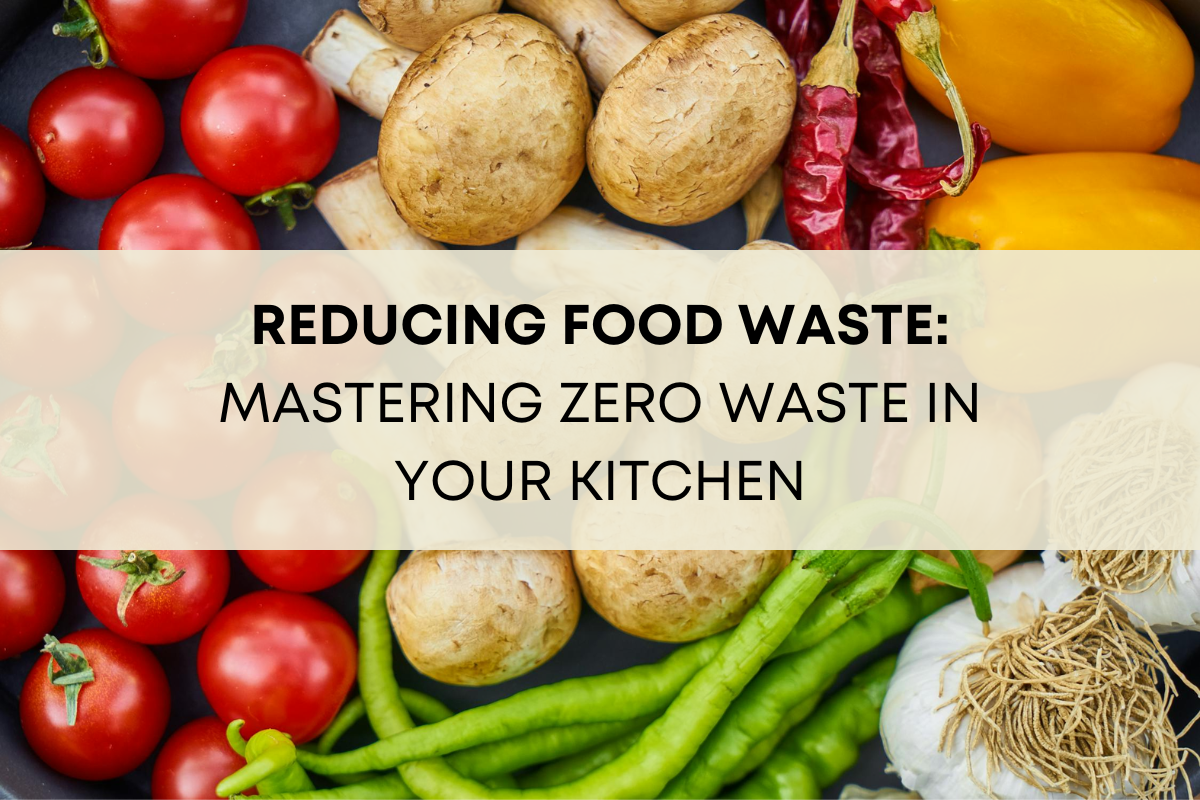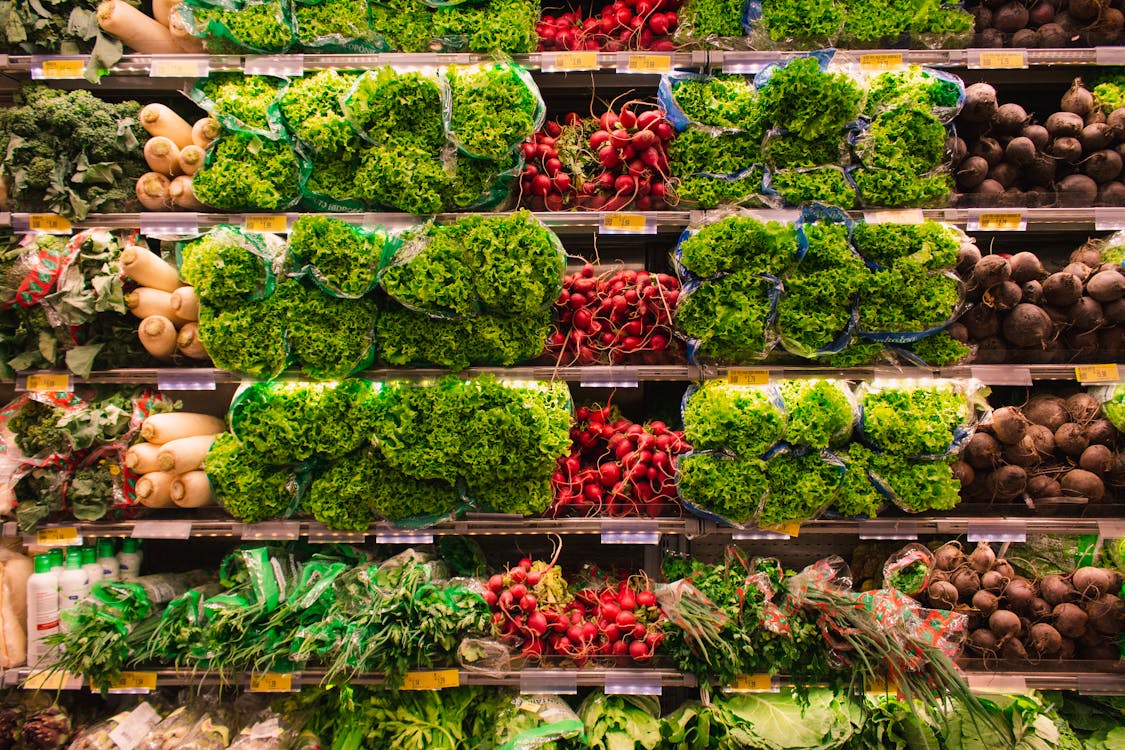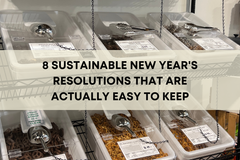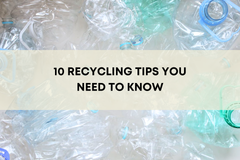Reducing Food Waste: Mastering Zero Waste in Your Kitchen

At Tare Market, our mission revolves around making sustainable living convenient and accessible to all people, so that as a community, we can decrease our environmental impact.
On top of offering plastic- and package-free goods, we want to help you on every step of the green journey to zero-waste. Whether it’s by providing you with your grocery and pantry alternatives, or it’s by offering educational resources and tools to ease your environmental impact.
Another way that you can help reduce the carbon footprint in your home is to reduce the amount of food waste that your household produces.
The Numbers Behind Food Waste
Did you know that about 33% of food produced ends up in the landfill before it’s even consumed or prepared?
This staggering statistic has a detrimental effect on our air, water and soil, and it doesn’t only affect our local community, but also ends up polluting surrounding communities since waste is often transported across state and country borders — and sometimes even shipped around the world.
The zero waste lifestyle is about decreasing your impact on the environment by using the 5 R’s:

Reducing Food Waste
There are some simple changes you can make to your shopping and eating habits that can make a drastic difference in reducing the amount of waste that is produced from your kitchen such as:
-
Mindful Meal Planning: Planning your meals can greatly reduce your food waste. This helps you avoid overbuying and ensures you use up ingredients before they spoil.
-
Take inventory of your fridge and pantry as you are planning out your meals: Take inventory of what you already have in your pantry and fridge - have some broccoli leftover from last week or some rice you have to use up? By taking stock of what you already have you will buy only what you need to cook for the upcoming week’s planned meals.
Tip: Supercook is a great way for you to plan meals by using up the groceries you already have. Simply select all of the ingredients you have on hand, and it’ll scour the internet for recipes that are compatible with what you have!

- Proper Storage: Store your fruits and vegetables properly to prolong their freshness. On top of not overbuying for what you need it for, properly storing your produce goes a long way to ensure it stays fresh longer, so you can use it when you need it.
For example: store leafy greens in airtight containers with a paper towel to absorb excess moisture and keep potatoes and onions in a cool, dark place. Or try this Vegetable Crisper Bag to elongate the life of your vegetables -
Tip: Did you know that many fruits or veggies should be kept separate from each other? Some fruits like bananas release ethylene gas, which can cause nearby produce to spoil.
The Seattle Public Utilities group put together this great PDF guide outlining where and how to store your fruits and vegetables in your kitchen to prolong freshness & reduce spoilage. - Use Your Leftovers Creatively! Use up your leftovers by incorporating them into new meals — for example, leftover veggies or produce near the end of its life-cycle can be turned into a hearty soup or stir-fry, or leftover fresh bread can be turned into breadcrumbs or even croutons!
- Lastly, you can Compost Food Scraps: instead of cutting food scraps or cuttings in the trash, consider creating a compost bin to create nutrient-rich soil for your garden! Food waste in the waste stream generates greenhouse gasses 23x as potent as CO2, which is why composting is a much better route for your food scraps and waste, if you must get rid of it.
Fruit and vegetable cuttings or peels, coffee grounds and egg shells are all perfect for composting. You can even keep cuttings of hearty veggies like onions, carrots, celery and more in the freezer and save until you have enough to make a vegetable broth!
Read our Composting 101 guide here.

By embracing methods like these to reduce food waste, you are not only contributing to a zero waste lifestyle, but you are also reducing your individual carbon footprint and taking a leap towards a more sustainable future. Making small changes like these will help to create better eating habits and reduce the amount of food ending up in the landfill. It also helps to create a healthier & broader understanding around food consumption and life-cycle and introduces another pathway, through composting and starting your own garden, into closing the loop.
At Tare Market, we’re dedicated to empowering you on your journey towards zero waste living, offering not only products, but also knowledge and support every step of the way.
Let us know your creative ways you’ve reduced your food waste!
Sources:
-
https://refed.org/food-waste/the-problem/#:~:text=Overall%2C%20ReFED%20estimates%20that%2033,roughly%201.8%25%20of%20U.S.%20GDP.
-
https://www.seattle.gov/util/cs/groups/public/@spu/@conservation/documents/webcontent/1_037049.pdf
-
https://epa.illinois.gov/topics/waste-management/materials-management/food-waste.html
Recent Blog Posts
Discover more tips on living #ZeroWaste!
-

8 Sustainable New Year's Resolutions That Are Actually Easy To Keep
Sustainable New Year’s resolutions don’t have to be overwhelming. These 8 simple, realistic habits make it easier to reduce waste, shop more intentionally, and build low-waste r...
Read more -

Your Holiday Disposal Guide
The holidays can generate a lot of extra waste, but much of it doesn’t need to end up in the landfill. This holiday disposal guide breaks down what can be recycled, composted, r...
Read more -

10 Recycling Tips You Need To Know
Recycling can be simple, but small mistakes can contaminate your recyclables and reduce their impact. In this guide, we share 10 practical tips to help you recycle smarter, from...
Read more



